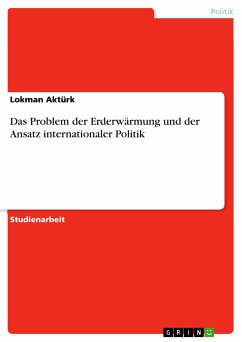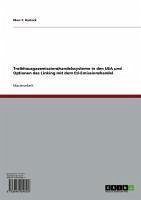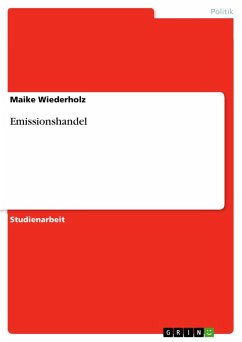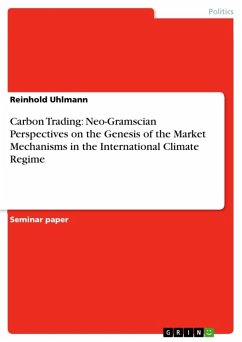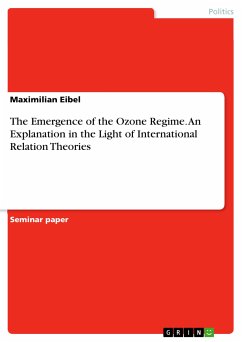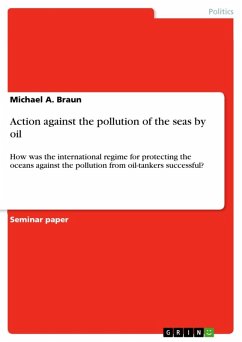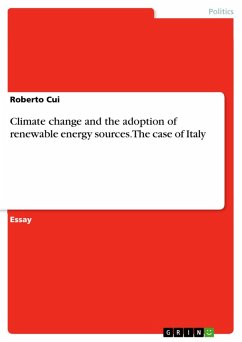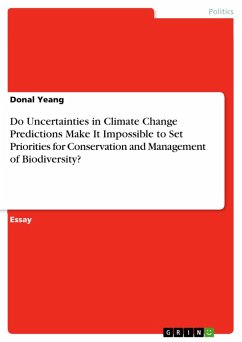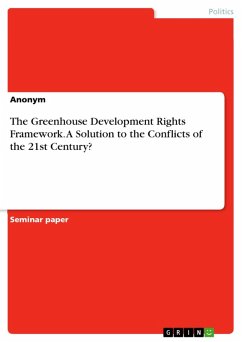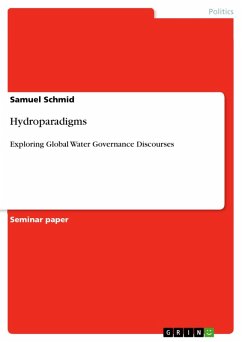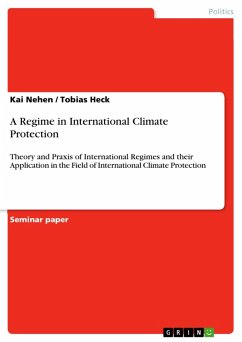
A Regime in International Climate Protection (eBook, ePUB)
Theory and Praxis of International Regimes and their Application in the Field of International Climate Protection
Versandkostenfrei!
Sofort per Download lieferbar
Statt: 18,95 €**
15,99 €
inkl. MwSt. und vom Verlag festgesetzt.
**Preis der gedruckten Ausgabe (Broschiertes Buch)
Alle Infos zum eBook verschenkenWeitere Ausgaben:

PAYBACK Punkte
0 °P sammeln!
Seminar paper from the year 2010 in the subject Politics - Environmental Policy, grade: 1,3, University of Mannheim, language: English, abstract: Not just since the failure of COP-15 in Copenhagen in December 2009 we know that dealing with climate change, its reasons and its consequences, is anything but easy. Climate protection is a small part of a wider image: The fight of humankind against any form of environmental degradation. No matter if it concerns the hole in the ozone layer, forest decline caused by acid rain or the distinction of species, firm action is required. Climate falls in the...
Seminar paper from the year 2010 in the subject Politics - Environmental Policy, grade: 1,3, University of Mannheim, language: English, abstract: Not just since the failure of COP-15 in Copenhagen in December 2009 we know that dealing with climate change, its reasons and its consequences, is anything but easy. Climate protection is a small part of a wider image: The fight of humankind against any form of environmental degradation. No matter if it concerns the hole in the ozone layer, forest decline caused by acid rain or the distinction of species, firm action is required. Climate falls in the same category, but moreover it is much more difficult to handle: As a common good climate affects every state on earth, equal if it is being destroyed or protected. Moreover, at first glance investments in climate protection seem to be curtailments in economic development and only having effects in the far future. Hence, we can consider climate politics on national and especially on international level as a hot subject where failures are easy and successes are rare, but where action is required. We target to investigate if the United Framework Convention on Climate Change (FCCC) and the subsequent Kyoto Protocol (KP) compose an international regime on climate change and how well various international relations approaches are able to explain the actual outcome. In the first part we start with the question: How do we know a regime when we see one? Subsequently, we depict the road to the adoption of the FCCC and the KP, respectively. Finally, we present different approaches in explaining the formation of regimes and use them to determine their predictive efficiency by applying them to our case study.
Dieser Download kann aus rechtlichen Gründen nur mit Rechnungsadresse in A, B, BG, CY, CZ, D, DK, EW, E, FIN, F, GR, HR, H, IRL, I, LT, L, LR, M, NL, PL, P, R, S, SLO, SK ausgeliefert werden.




